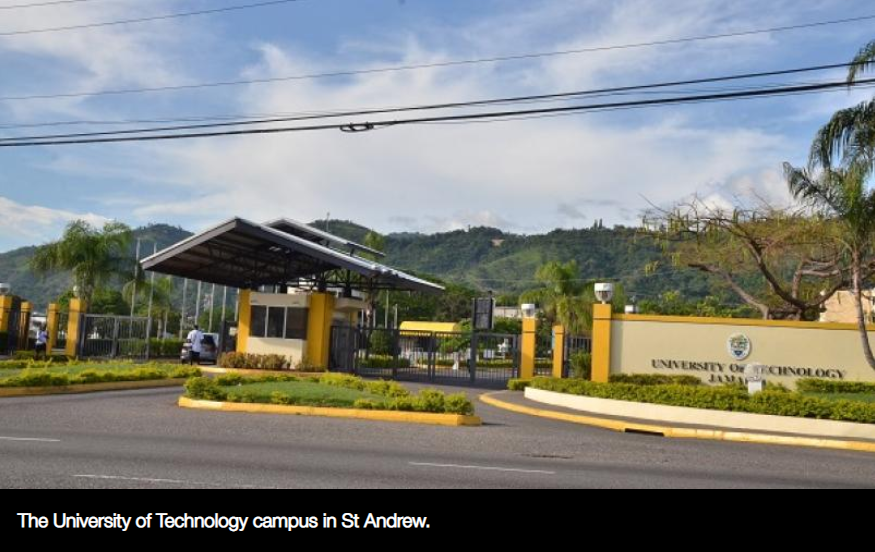Northern Caribbean University and the University of Technology have joined the University of the West Indies in gaining institutional accreditation from the University Council of Jamaica (UCJ).
The institutions were both found to have met the required standards of quality after being evaluated by a team of international experts drawn from Higher Education institutions and Quality Assurance Agencies across the world, using standards for institutional accreditation.
It has been touted as yet another important achievement in the Higher Education sector in Jamaica. Under the guidance of the UCJ, these institutions have developed their own internal quality assurance system (administrative and academic systems) that ensures that quality programmes are delivered by these institutions. Employers, institutions and the general public can therefore have confidence in the knowledge and competence of the graduates of these institutions for the various professions as well as for further studies.
“It is important to make the distinction between programme accreditation and institutional accreditation,” UCJ Executive Director, Althea Heron, said in a news release.
“Programme accreditation means that a programme which has been subjected to the UCJ’s rigorous accreditation process, has been found to meet established standards of quality,” she continued. “Institutional accreditation, on the other hand, involves the evaluation of the effectiveness of the institution’s internal quality assurance (IQA) system to determine if it meets the required standards of quality.”
According to Heron, the accredited institutions, having been subjected to the UCJ’s “rigorous” accreditation process, have demonstrated that their internal quality assurance system is robust, mature and effective in ensuring that all programmes offered meet the required standards of quality and enable students’ success.
This type of accreditation promotes institutional effectiveness through self-evaluation, self-regulation and accountability. Programmes offered at these institutions with institutional accreditation are therefore recognized as being comparable in standards to an accredited programme, she said, noting that it’s is consistent with international best practices.
Dr Carolyn Hayle, the Chairman of the UCJ added, “As the national External Quality Assurance Agency (EQAA) for higher education, the UCJ is responsible for assuring the quality of higher education institutions and programmes. Once the UCJ is satisfied, by way of evidence provided, that an institution and/or its programmes meet or exceed established standards for educational quality, it grants the stamp of approval that gives the institution its credibility, recognition, and acceptance locally and internationally.”
In Jamaica, as in many countries, accreditation consists of three main components:
Self-evaluation – The institution evaluates itself against globally recognised standards established for the operation of higher education institutions;
Peer Review – An evaluation team, consisting of international experts in higher education who are external to the UCJ, conducts a review of the institutions against the established standards. This involves a site visit to the institution and its off-site campuses by the evaluation team. The institution has to demonstrate, by showing evidence, that its IQA system is intact and can withstand the scrutiny of the UCJ – the National External Quality Assurance Agency (EQAA). The findings are presented in a report which is shared with the institution. The institution is then invited to make a formal response to the findings of the reviewers; and
Decision by Council – The report of the team along with the institution’s response to the report are used by an Institutional Accreditation Review Committee of the UCJ, to decide on the recommendation to be made to the UCJ Council regarding the accreditation of the institution.
Institutional accreditation is granted for a maximum period of seven years. During this period, the UCJ monitors the institution to ensure that it continues to maintain the standards for accreditation and implements measures to improve the quality of its programmes including the recommendations, contained in the accreditation report, that were affirmed by the Institutional Accreditation Review Committee. Monitoring involves:
– Institutions submitting annual status reports to the UCJ showing the improvements that have been implemented in regard to the recommendations contained in the accreditation report; and
– UCJ conducting a Mid cycle review to determine if the institution continues to meet the terms and conditions for accreditation.
If the UCJ detects a slippage in the maintenance of quality at the institution and integrity of the teaching and learning process; the UCJ will recommend strong measures to the institutions.
Loss of accreditation is a very serious matter and has grave consequences for an institution. It is not to be taken lightly and the international processes for granting accreditation must not be compromised.
To date, six other institutions have submitted Expressions of Interest for Institutional Accreditation. Of the six, one is being processed for candidacy, and another has submitted its Eligibility Criteria for Institutional Accreditation.
Hayle explained that, “institutional accreditation will provide institutions with greater flexibility and autonomy in providing programmes that cater to needs of their students and the labour market.”
Over the years the UCJ has, through its quality assurance process, facilitated the growth and development of a coherent higher education sector in Jamaica that is inclusive and flexible.
http://www.loopjamaica.com/content/ncu-utech-accredited-university-council-jamaica


